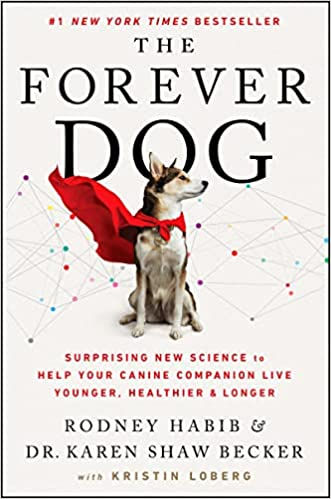- Sep 26, 2025
- 4 min read
Bringing a Golden Retriever puppy into your home is a joyful experience filled with anticipation and hope. We all want our new furry family member to be healthy, happy, and well-adjusted. But behind every healthy puppy is a story of careful planning, dedication, and love from breeders who prioritize the well-being of their dogs. Today, I want to share what I’ve learned about ethical dog breeding and why it matters so much for families seeking the perfect Golden Retriever companion.
What Does Ethical Dog Breeding Really Mean?
Ethical dog breeding is more than just pairing two dogs and hoping for the best. It’s a thoughtful, responsible process that focuses on the health, temperament, and overall welfare of both the puppies and their parents. When breeders commit to ethical practices, they ensure that every puppy has the best start in life.
At its core, ethical dog breeding involves:
Health screenings: Testing parent dogs for genetic diseases common in Golden Retrievers, such as hip dysplasia and heart conditions.
Temperament evaluation: Selecting dogs with stable, friendly personalities to promote well-adjusted puppies.
Proper socialization: Exposing puppies to various sights, sounds, and gentle handling from an early age.
Clean and safe environments: Providing spacious, hygienic living areas that encourage healthy growth.
Limited breeding frequency: Avoiding overbreeding to protect the health of the mother and puppies.
These practices are not just ideals; they are essential steps that responsible breeders take to ensure the puppies they raise will thrive in their new homes.

Why Ethical Dog Breeding Matters for Your Family
When you bring a puppy home, you’re making a long-term commitment. Puppies from ethical breeders tend to have fewer health problems and better temperaments, which means less stress and more joy for your family. I’ve seen firsthand how puppies raised with care grow into confident, loving dogs who fit seamlessly into family life.
Ethical breeding also helps reduce the risk of inherited diseases. For example, breeders who test for hip dysplasia can avoid breeding dogs that carry this painful condition. This proactive approach means your puppy is less likely to face costly vet bills or mobility issues later on.
Moreover, ethical breeders often provide ongoing support and guidance. They want to see their puppies succeed and are happy to answer questions or offer advice as your puppy grows.
If you’re considering a Golden Retriever puppy, I encourage you to look for breeders who openly share their health testing results and breeding practices. This transparency is a hallmark of ethical dog breeding.
How Often Do Responsible Breeders Breed Dogs?
One question I often get asked is how frequently responsible breeders breed their dogs. The answer is simple but important: we prioritize our dog's health. Ethical breeders prioritize the health of the mother above all else. This means allowing ample time between litters for recovery and ensuring the dog is physically and emotionally ready to breed again.
Typically, a responsible breeder will breed a female dog no more than once or twice a year. Some may even wait longer between litters. This careful pacing helps prevent health complications and reduces stress on the mother.
By limiting breeding frequency, ethical breeders contribute to healthier puppies and happier dogs throughout their lives.

The Role of Socialization in Raising Well-Adjusted Puppies
One of the most critical aspects of ethical dog breeding is early socialization. Puppies are like sponges during their first few weeks of life, absorbing everything around them. Ethical breeders expose puppies to gentle handling, different sounds, and various environments to build confidence and reduce fearfulness.
For example, puppies might be introduced to:
Household noises like vacuum cleaners and doorbells
Different textures such as grass, carpet, and tile
Friendly interactions with people of all ages
This early exposure helps puppies develop into adaptable, friendly dogs who are comfortable in new situations. It also makes the transition to their new homes smoother for both the puppy and the family.

Supporting Ethical Breeding Through Your Choices
Choosing a puppy from an ethical breeder is one of the best ways to support responsible dog breeding practices. When you buy from breeders who prioritize health, temperament, and socialization, you’re encouraging others to follow suit.
Here are some tips to keep in mind when searching for your new puppy:
Be patient: Good breeders may have waiting lists because they breed selectively.
Ask questions: Don’t hesitate to inquire about health tests, breeding frequency, and puppy care.
Avoid puppy mills and pet stores: These sources often prioritize profit over the well-being of dogs.
By making informed choices, you help promote a future where all puppies have the chance to grow up healthy and happy.
Welcoming Your New Puppy Home
Once you’ve found a puppy from an ethical breeder, the journey continues. Preparing your home and family for the new arrival is essential. Here are a few practical tips:
Set up a cozy, safe space for your puppy to rest.
Stock up on quality food, toys, and grooming supplies.
Schedule a vet visit within the first few days.
Begin gentle training and socialization right away.
Be patient and consistent as your puppy adjusts.
Remember, the love and care you provide will shape your puppy’s future just as much as the breeder’s efforts.
Choosing a Golden Retriever puppy is a wonderful adventure, and understanding ethical dog breeding helps ensure that adventure starts on the right paw. By supporting breeders who prioritize health, temperament, and socialization, you’re giving your new family member the best possible beginning. If you want to explore more about responsible dog breeding, I encourage you to visit Manor House Goldens and see their dedication firsthand. Here’s to many happy years with your new furry friend!
- Oct 27, 2021
- 3 min read
Updated: Oct 30, 2021
Hope all is well with you, your family and your furry friends. I just wanted to share a healthier approach to feeding your Manor House Golden baby and I’m hoping to educate as many of our families as possible.
I’ve been doing A LOT of research on a better dog food for my adults as well as my puppies. I’ve been reading/studying the book, “The Forever Dog” and it’s really a lot of great information.
One of the takeaways is that a raw food diet may be better for dogs but not feasible for many reasons: Expense, Time Consuming, Confusing to truly make sure your pup is getting all of the nutrients it needs and the fact that Salmonella is an issue with using the raw meat and many people (myself included) have compromised immune systems/elderly parents/children in the home and don’t want to take that chance. (there are plenty more but those are just a few thoughts.)
After LOTS of research, I’ve decided to transition to using an All Natural, Holistic Dogfood that is U.S. based, sources all of it’s ingredients in the U.S. (with the exception of sourcing it’s duck from France- which I can understand.) and has never had any recalls on it’s products. It rates at the top of the charts on Dogfood Advisor. I’m not a fan of my dogfood ingredients being sourced in China… and then wondering why there’s a recall on the food or treats!
I’ve switched all of my dogs over – adults and puppies alike.
I’m using the “PawTree Chicken and Brown Rice Formula” and I’m going to recommend to all of our puppy parents to transition their pups over as well.

They’re a smaller company that focuses on quality rather than quantity and pushing as much of their products in the stores like the big companies do.
Here’s a little bit of an overview of their food and why I chose them: Note: they have a grain-free as well as a Healthy grain recipe. I recommend the healthy grain recipes. 😊
The food and health supplements are amazing. It is the first time in my years of breeding that I can stand fully behind a company and promote their products. I am reaching out to every family that has purchased a puppy from me and asking them to consider switching to pawTree.
I’ve done lots of food comparisons to look the differences between other foods on the market (including the Nutro and Pro Plan that I’ve been using for years) and PawTree. In the end, I’ve chosen PawTree.
If you are having any issues that their supplements can address- I highly recommend those as well. My dogs having hot spots and ear problems got my attention and I wanted to find solutions because they seemed miserable. I found switching over my dogfood could clear up a lot of those issues- I didn’t realize they were coming from ingredients in their food. ☹
Their supplements are also all natural and holistic- sooo much better for our pets.
They also have cat foods and kitty supplements for all of you cat owners. 😊
I would go with a HEALTHY GRAIN VERSION of dog food for your dogs- like Chicken or Turkey and Brown Rice.
Once you go to their site, it’s best to set up your pet profile. www.pawtree.com/manorhousegoldens/petprofile .
They give you feeding guidelines based on the breed, weight and activity levels for your pet.
One terrific thing about their food is that they don’t add fillers to their food- therefore, it is calorie dense and you will be feeding them less than the foods that have a lot of fillers. (This also translates into less “stool” to cleanup… if you know what I mean.) 😉
One example of this is that my adult dogs require 5 ¼ cups of Pro Plan each day (they add corn meal and other fillers that do nothing for their nutritional needs and pass right through the dog). **I told you I’ve been studying up on this A LOT. 😝
PawTree requires that I feed around 2 cups or less of food per day for my active adults, less for my senior dogs that are more sedentary.
One and a half 10 pound bags will last each of my adult dogs a month at that amount of feeding.
And please let me know if I can answer any of your questions- I’ve done A LOT of studying up on this and if I can help, I will be more than happy to. I’m certainly no expert but I can pass along the knowledge I’ve gained in the process. 😊
Here's a link with an introductory promo code to get 20% off of your first order.
if you want to look around:
Please give your pup hugs from their breeder-mommy <3
Denise
Manor House Goldens
Please feel free to text me anytime 434-960-5023
- Oct 26, 2021
- 1 min read
Updated: Oct 30, 2021
by Rodney Habib
"...41% of North Americans today actually have a dog.

As awesome as dogs are,
sadly, they're flawed, according to science.
Dogs here are not living that long,
not as long as they should, and they're dying very young.
And we ask the question why,
these animals are living in some pretty scary statistics.
We have to start looking around the world at these statistics.
We know that in the last 5 years in the United Kingdom,
diabetes is up 900% when it comes to the dog.
In North America, the obesity epidemic is up 60%
as animals are plagued with obesity, and that statistics continues to climb.
And the worst one, the most staggering statistic of all,
the one that is decimating our pets all over the planet is cancer.
One in two dogs today is diagnosed with cancer,
and in fact, research are showing that of any animal on the planet,
the dog has the highest rate of cancer.
And this has left the scientists scratching their heads.
What's happening?
So, what you're seeing now is the largest canine study to ever be conducted.
3,000 dogs, 25 million dollars to figure out why the dogs are broken.
It's being conducted on Golden Retrievers.
We have to ask the question, "What is going on?"
According to Dr. Lappin who's involved in the study,
he said that when he graduated from Vet School in the 70s,
dogs used to live to be 17.
Sadly today, they're only living to be 11.
And the Golden Retriever itself is only living to be nine or ten.
So what is it?
What are these factors that are plaguing us with cancer? ..."


%20is%20such%20a%20teddy%20bear!%20%F0%9F%98%8D%20We've%20had%20him%20since%20he%20was%20a%20puppy%20and%20I've%20.jpg)



































